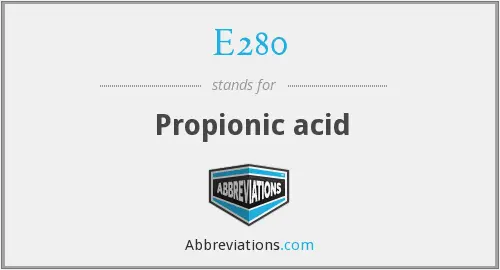Propionic acid (propionic acid, propanoic acid, methylacetic acid, E280) is a colorless, acrid liquid with a pungent odor.
Chemical formula C2H5COOH. It is mixed with water and organic solvents.
Propionic acid and its derivatives are used in the production of herbicides (propanol, dichloroprol), medicines (ibuprofen, phenobolin, etc.), aromatic substances (benzyl -, phenyl -, geranyl -, linaloyl – propionates), plastics (for example, polyvinylpropionate), solvents (propyl -, butyl -, pentylpropionate, etc.), vinyl plasticizers and surfactants (glycol esters).
Propionic acid prevents the growth of mold and some bacteria. Therefore, most of the propionic acid produced is used as a preservative in foods consumed by humans and in animal products. In animal products, propionic acid is used directly, or its ammonium salt (ammonium propionate). In foods consumed by humans, especially in bread and other baked goods, propionic acid is used as a sodium (sodium propionate) or calcium (calcium propionate) salt.
The main danger of propionic acid is chemical burns, which can occur in contact with concentrated acid. In laboratory animal studies, the only adverse effect associated with long-term use of a small amount of propionic acid was the formation of ulcers in the esophagus and stomach due to the corrosive properties of the substance. Studies have not found that propionic acid is toxic, mutagenic, carcinogenic, or negatively affects the reproductive organs.
In the body, propionic acid is rapidly oxidized, metabolized, and eliminated from the body as carbon dioxide in the Krebs cycle, without accumulating in the body.










